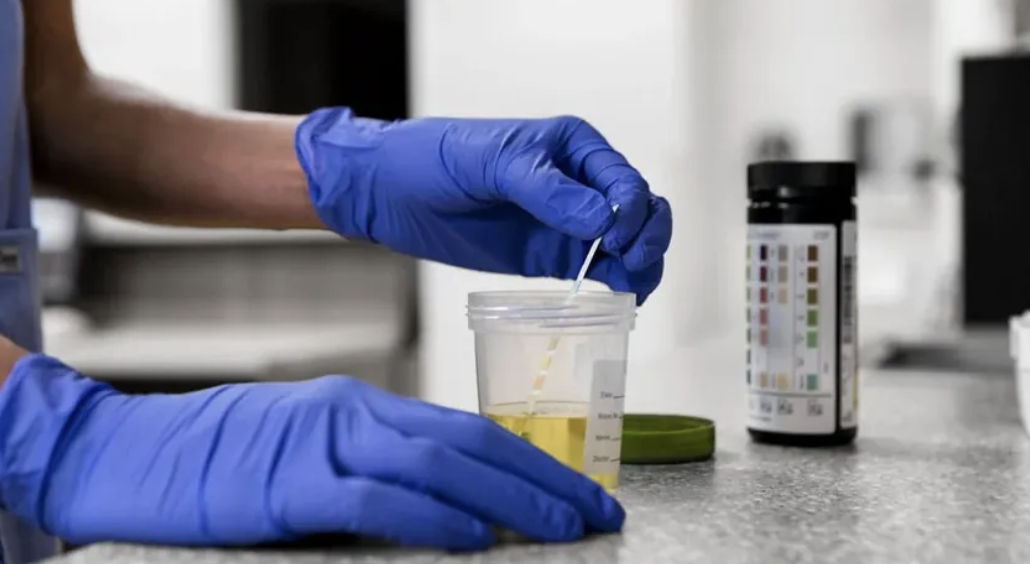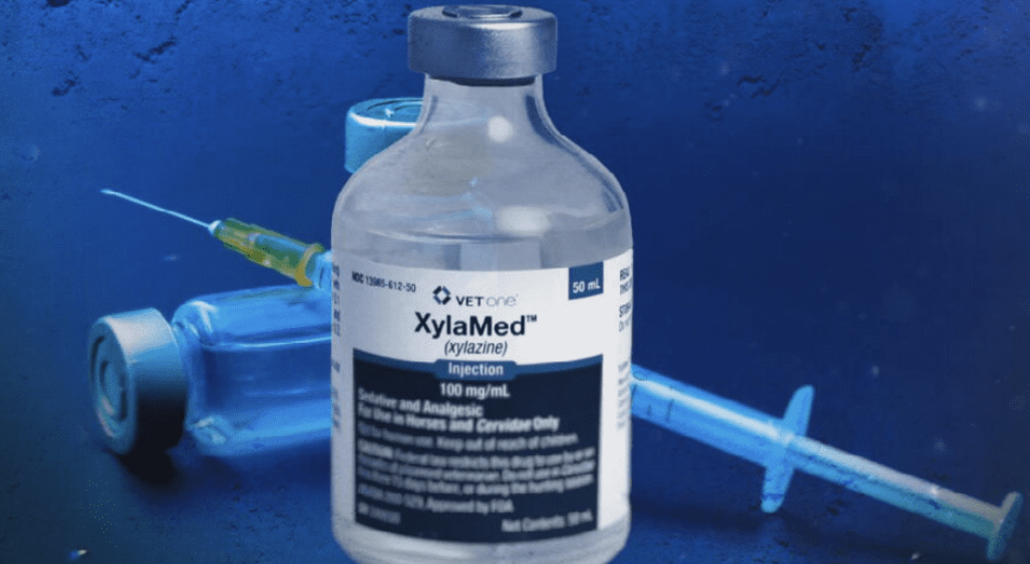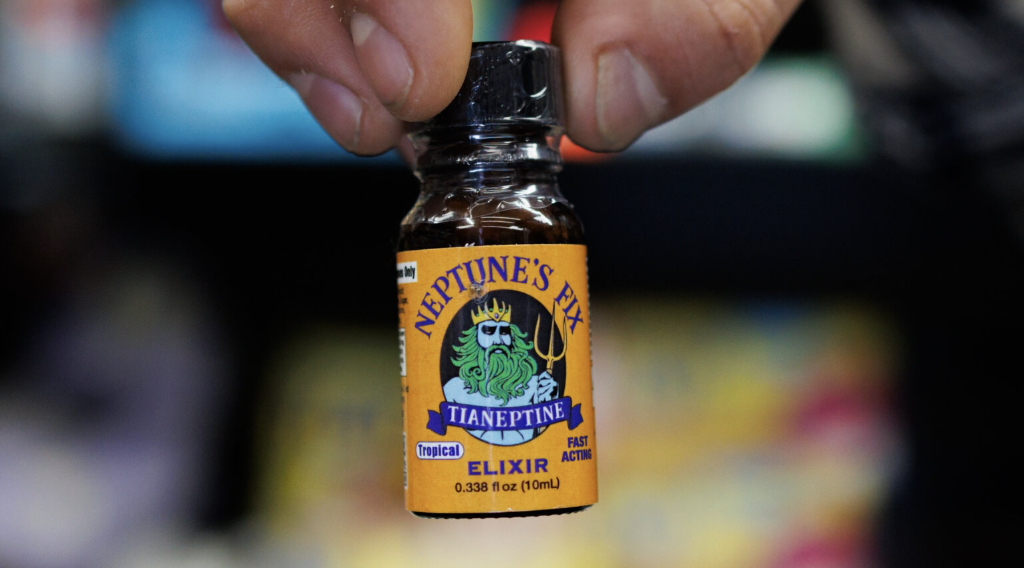What is a dry drunk? It refers to someone sober who hasn’t resolved the deeper emotional and psychological issues driving their addiction. They may no longer drink but still behave like someone affected by alcohol addiction, missing the growth needed for complete recovery. In this article, we’ll explore the signs, causes, and recovery strategies for dry drunk syndrome.
Key Takeaways
- Dry drunk syndrome refers to the emotional and psychological issues that persist despite abstaining from alcohol, highlighting the importance of comprehensive recovery that includes emotional healing.
- Key symptoms of dry drunk syndrome include emotional instability, resentment, avoidance of responsibility, and a compulsive need for control, which can affect relationships and overall quality of life.
- Recovery from dry drunk syndrome requires active engagement in structured recovery programs, working with therapists or sponsors, and practicing emotional honesty and self-reflection to address underlying issues.
Dry Drunk vs. Sober Recovery: What’s the Difference?
Being sober does not automatically mean that an individual has recovered from alcohol addiction. Many people who have stopped drinking alcohol still exhibit problematic behaviors reminiscent of their drinking days. This condition is frequently called dry drunk syndrome. It is characterized by certain emotional and behavioral patterns. In contrast, individuals in active addiction not only abstain from substances but also engage in emotional and psychological healing to achieve true recovery.
Dry drunks avoid alcohol but lack the emotional healing necessary for true recovery. They may still harbor resentment, denial, or ego, which can manifest in various negative behaviors related to drug use. On the other hand, those actively recovering work towards rebuilding their health and connections, addressing the root causes of their addiction, and fostering a healthier mindset.
Recognizing the key differences between a dry drunk and someone in active recovery is crucial for anyone pursuing sobriety. This underscores the importance of not just quitting alcohol but also embracing a comprehensive recovery process that fosters emotional and psychological growth.

Mindset and emotional growth
A person’s mindset plays a crucial role in their recovery journey. Dry drunks often retain unresolved emotional issues, leading to behaviors that mirror their past drinking habits. They may experience mood swings, harbor resentment towards their sobriety, and feel emotionally numb or detached from their lives. This lack of emotional growth can hinder their recovery process and make it difficult to achieve lasting sobriety.
In contrast, those in active recovery engage in emotional and psychological work, including:
- Confronting their unresolved feelings and challenges head-on
- Replacing negative thought patterns with healthier perspectives
- Developing coping strategies to deal with stress
- Actively working towards personal growth and accountability
This emotional growth is crucial for achieving genuine recovery and maintaining long-term sobriety.
Healthy coping mechanisms are crucial for overcoming the challenges linked to dry drunk syndrome. Instead of engaging in harmful behaviors, individuals in recovery learn to manage their emotions constructively, fostering a positive recovery experience and paving the way for healthy habits, a healthier, more fulfilling life.
Support system and accountability
A robust support network is vital for successful recovery. Dry drunks often lack this support system, which can lead to a return to negative behaviors. In contrast, individuals in active recovery benefit from the guidance, accountability, and emotional safety provided by support groups, sponsors, and professional assistance.
Connecting with others who understand sobriety challenges offers both encouragement and accountability for those recovering from dry drunk syndrome. Support groups like Alcoholics Anonymous (AA) offer a sense of community and shared experiences that can be incredibly valuable in preventing a return to negative behaviors.
Professional support from counselors or therapists trained in addiction issues can enhance recovery efforts for those experiencing dry drunk behaviors. These professionals can provide structured coping strategies, address underlying emotional issues, and offer a safe space for individuals to explore their past traumas and negative patterns.
Dry Drunk Syndrome: Symptoms and Signs
Dry drunk syndrome is a state where individuals exhibit emotional and psychological symptoms despite having stopped drinking alcohol. These symptoms indicate a lack of emotional and psychological healing, which can persist if recovery is not actively pursued. It is essential to recognize these symptoms of dry drunkenness. This awareness helps in identifying and addressing dry drunk syndrome.
The most recognized symptoms of dry drunk syndrome include:
- Emotional instability
- Resentment
- Blaming others
- Avoiding responsibility
- An obsession with control and perfectionism
These behaviors can significantly impact an individual’s relationships with loved ones, mental health, and overall quality of life, including various psychological aspects.
Emotional instability and resentment
Individuals in a dry drunk state frequently experience mood swings characterized by irritability and frustration. They may describe individuals who alternate between depressive states and excessive happiness, often over minor issues. This emotional instability can make it difficult for them to maintain healthy relationships and navigate daily life.
Harboring resentment towards sobriety is another common feature of dry drunk syndrome. Individuals may feel deprived of the pleasure previously associated with drinking, leading to bitterness and dissatisfaction with their current state. This resentment can manifest as anger towards themselves or others, further complicating their recovery.
Emotional numbness is also prevalent among those experiencing dry drunk syndrome. They may feel detached from their lives and experiences, struggling to connect with their emotions and the people around them. This detachment can hinder their ability to engage in meaningful relationships and enjoy a fulfilling life.

Blaming others and avoiding responsibility
People exhibiting dry drunk syndrome often externalize their unhappiness by blaming others instead of taking personal accountability. This projection and victim mindset can resemble patterns seen in adult children of alcoholics traits, leading to a persistent sense of self-pity and resentment toward those around them, affecting each person involved.
This avoidance of responsibility can hinder personal growth and complicate recovery efforts. Attributing their issues to external factors prevents individuals from examining their own role, making it difficult to address the underlying issues contributing to their dry drunk behavior.
Obsession with control and perfectionism
A tendency towards rigid control and perfectionism may surface in dry drunks as they struggle with unresolved emotional issues. They may exhibit:
- A compulsive need to control their environment and situations
- Striving for unattainable standards
- An obsession with control that can impede collaboration with others
- Resistance to delegating tasks or accepting help
Perfectionistic tendencies can lead to chronic dissatisfaction, as they frequently set unrealistic expectations for themselves and others, resulting in anxiety and irritability.
What Causes Someone to Become a Dry Drunk?
The underlying causes of dry drunk syndrome often involve avoiding emotional work, skipping therapy or AA, or quitting cold turkey without a plan. These behaviors can leave emotional issues unaddressed, leading to the persistence of negative behaviors associated with alcohol use disorder and alcohol addiction.
Exploring these root causes is essential for understanding why someone may develop dry drunk syndrome and how to prevent it. Recognizing the importance of emotional and psychological healing allows individuals to take proactive steps towards achieving true recovery.
Skipping the recovery process
Avoiding therapy, steps, or peer support can significantly increase the risk of developing dry drunk syndrome. Without these critical components of recovery, individuals may struggle to address the emotional and psychological issues that contributed to their addiction.
A successful recovery involves engaging in a comprehensive recovery process that includes therapy, support groups, treatment, and structured recovery programs. These resources provide the guidance and accountability necessary for long-term recovery and emotional healing.
Emotional suppression and avoidance
Many recovering alcoholics may struggle with emotional suppression, having previously used alcohol to mask their feelings. When they stop drinking, unresolved emotional issues such as trauma and anxiety can resurface, leading to anger and frustration.
Failing to address these underlying emotional issues can contribute to dry drunk syndrome. Without healthy coping mechanisms and a supportive network, individuals may struggle with feelings of inadequacy and frustration, increasing the likelihood of returning to negative behaviors.
Dangers of Remaining a Dry Drunk
Remaining in a dry drunk state can lead to significant emotional and psychological challenges, increasing the likelihood of an alcohol relapse if underlying issues are not addressed. The destructive behaviors reminiscent of alcohol addiction can persist, impacting an individual’s quality of life and relationships.
Understanding the dangers of remaining a dry drunk is crucial for motivating individuals to seek help and engage in the necessary emotional work for true recovery. Addressing these issues can significantly reduce the risk of relapse and improve overall well-being.

Higher relapse potential
The likelihood of relapse increases if the emotional and psychological issues linked to alcoholism remain unaddressed. Emotional instability commonly experienced by dry drunks can lead to an increased risk of relapsing to alcohol use as a coping mechanism.
Linking untreated emotional symptoms to increased relapse rates underscores the importance of addressing these issues in recovery. Emotional healing and developing healthy coping strategies can significantly reduce the risk of relapse and promote lasting sobriety.
Strained personal and professional relationships
The negativity and isolation often seen in dry drunks can lead to significant turmoil in their relationships with family, friends, and colleagues. The unpredictable mood swings associated with dry drunk syndrome can manifest as irritability and resentment, straining both personal and work relationships.
Expectations from others for significant personal change after quitting drinking can amplify tensions in relationships affected by dry drunk behavior. Emotional instability linked to dry drunk syndrome can lead to conflict in personal relationships, impacting family dynamics and friendships.
How to Recover from Dry Drunk Syndrome
Recovery from dry drunk syndrome involves actively addressing emotional and behavioral patterns associated with sobriety. Structured recovery programs, working with a therapist or sponsor, and practicing emotional honesty and self-reflection can help individuals overcome dry drunk syndrome and achieve lasting sobriety.
Offering a clear roadmap towards emotional sobriety is essential for anyone struggling with dry drunk syndrome. These steps provide the guidance and support necessary for a successful recovery journey.
Join structured recovery programs
Participating in structured recovery programs can provide individuals with a supportive community and resources tailored for overcoming dry drunk syndrome. Programs like Alcoholics Anonymous (AA) and SMART Recovery offer a sense of community, shared experiences, and structured guidance that can be incredibly valuable in recovery.
Encouraging participation in these programs highlights the importance of a supportive network in achieving lasting sobriety. Participating in group therapy and these structured programs provides individuals with the encouragement and accountability necessary for a successful recovery journey.
Work with a therapist or sponsor
Engaging with a therapist or sponsor helps individuals navigate their recovery and fosters accountability in their journey. Collaborating with a therapist or sponsor can guide individuals in addressing the root causes of their dry drunk syndrome and aid in emotional recovery. Regular emotional accountability is crucial for maintaining progress and preventing setbacks in recovery from dry drunk syndrome.
Therapists can offer structured coping strategies to help individuals manage stress and improve emotional health. Therapeutic approaches such as Cognitive Behavioral Therapy (CBT) and, in some cases, alcohol addiction medication are beneficial for managing the emotional effects of dry drunk syndrome and promoting healthier treatment options for thought patterns.
A sponsor can provide accountability and support, helping individuals stay connected to their motivations for sobriety.
Practice emotional honesty and self-reflection
Emotional honesty and self-reflection are critical for identifying underlying issues that contribute to dry drunk syndrome. Emotional honesty helps individuals in recovery confront their feelings and thoughts directly, which is crucial for overcoming dry drunk syndrome. Utilizing journaling as a tool for self-reflection can help individuals articulate their emotions and experiences, which is beneficial in recovery.
Practicing self-awareness through reflection supports individuals in understanding their motivations and triggers related to their past drinking behavior. This process can help those in recovery recognize patterns of behavior that may lead to dry drunk syndrome, thereby facilitating healthier coping mechanisms and promoting lasting sobriety.
Dry Drunk in AA: How the Term Originated
The concept of ‘dry drunk syndrome’ was introduced by the founders of Alcoholics Anonymous (AA), specifically defined by R.J. Solberg in his 1970 book. The term refers to the behavioral patterns and attitudes that resemble those of an active alcoholic, even after quitting drinking. It highlights the importance of addressing the underlying emotional and psychological issues that contribute to addiction.
Although the term has been met with some criticism within the 12-Step community, it is recognized as a valid psychological condition. Overcoming dry drunk syndrome involves a desire to confront the underlying issues that contribute to one’s addiction, emphasizing the need for comprehensive recovery programs and emotional healing.
When to Seek Help for a Dry Drunk State
Recognizing the need for assistance is crucial when an individual exhibits signs of emotional or behavioral distress during sobriety. Persistent irritability, mood swings, and feelings of self-pity are key indicators that professional or peer-supported intervention may be necessary. Identifying these red flags can help individuals seek the support they need to prevent relapse and achieve lasting sobriety, especially in the context of post acute withdrawal syndrome.
It is important to address both mental health warning signs and behavioral red flags to ensure comprehensive support for those experiencing dry drunk syndrome. Recognizing these indicators enables individuals to take proactive steps towards seeking the help they need for a successful recovery journey.
Mental health warning signs
Dry drunks may experience severe mood swings, irritability, and feelings of self-pity as key mental health indicators. Co-occurring disorder issues like anxiety, depression, or suicidal ideation also signal the need for professional assistance. These mental health warning signs highlight the importance of addressing emotional and psychological issues during recovery.
Early recognition of these signs can help individuals seek the necessary support to prevent further emotional distress and potential relapse. Addressing these mental health issues is crucial for achieving lasting sobriety and overall well-being.
Behavioral red flags
Isolation from friends and support groups is a common behavior observed in those experiencing dry drunk syndrome. Signs like withdrawal symptoms, withdrawal from social activities, increased irritability, and romanticizing past drinking indicate a dry drunk state that requires intervention. These behaviors can significantly impact an individual’s relationships and overall quality of life.
Individuals exhibiting dry drunk behaviors may act aggressively or irresponsibly, despite having ceased alcohol consumption. Recognizing these behavioral red flags can help individuals seek the support they need to address their underlying issues and work towards a successful recovery.
Bottom Line: What is a Dry Drunk
Understanding dry drunk syndrome is essential for anyone on the path to recovery from alcohol addiction. This state, where individuals abstain from alcohol but continue to exhibit negative behaviors, highlights the importance of addressing emotional and psychological issues along the alcohol recovery timeline for true healing. Recognizing the symptoms, underlying causes, and dangers of dry drunk syndrome can motivate individuals to seek the necessary support and engage in comprehensive recovery programs.
By joining structured recovery programs, working with a therapist or sponsor, and practicing emotional honesty and self-reflection, individuals can overcome dry drunk syndrome and achieve lasting sobriety. The journey to recovery is challenging, but with the right support and commitment to emotional healing, it is possible to lead a fulfilling, sober life.
FAQs About Dry Drunks
What is dry drunk syndrome?
Dry drunk syndrome occurs when individuals refrain from alcohol consumption but still display negative behaviors and attitudes linked to their previous drinking patterns. It highlights the importance of addressing underlying emotional and psychological issues for effective recovery.
How can I tell if someone is a dry drunk?
You can identify a dry drunk by observing signs such as emotional instability, resentment, blame-shifting, avoidance of responsibility, and a fixation on control and perfectionism. These behaviors indicate that the individual may be struggling with issues related to their sobriety.
Can dry drunk syndrome lead to relapse?
Yes, dry drunk syndrome can lead to relapse, as it often indicates unresolved emotional and psychological issues that, if not addressed, may increase the likelihood of returning to substance use.
What are the dangers of remaining a dry drunk?
Remaining a dry drunk poses serious emotional and psychological risks, potentially causing strained relationships and heightened chances of relapse. It is crucial to address these issues proactively to maintain sobriety and overall well-being.
How can someone recover from dry drunk syndrome?
To recover from dry drunk syndrome, it is essential to engage in structured recovery programs and work with a therapist or sponsor while practicing emotional honesty and self-reflection. Taking these steps will facilitate genuine healing and personal growth.
















